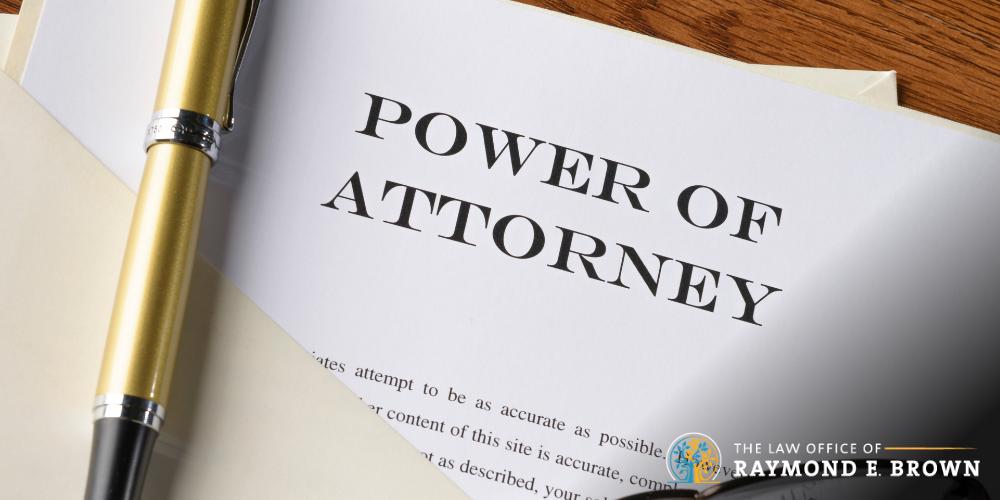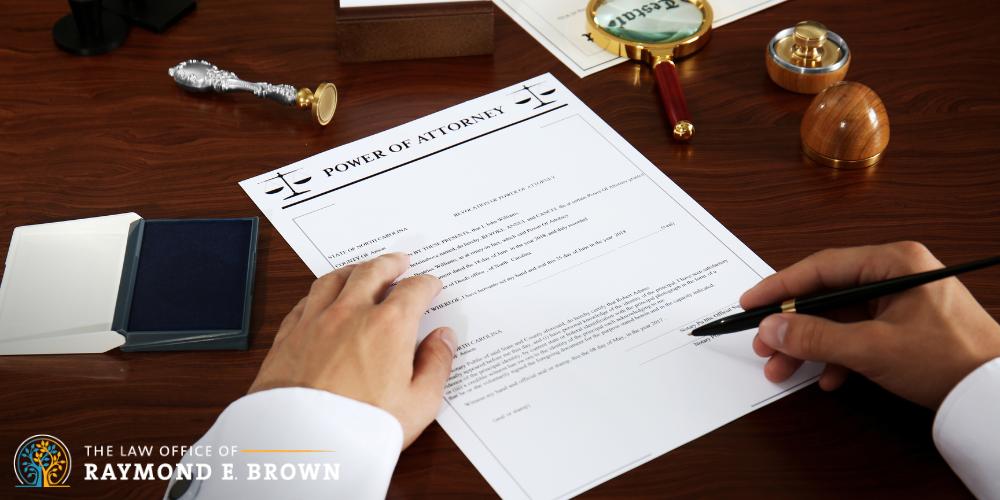Power of Attorney
Home > Practice Areas > Power of Attorney
Annapolis, Maryland Power of Attorney Lawyer
Experienced Power of Attorney Lawyer Serving Anne Arundel County, Washington D.C., and Beyond
An estate plan is typically composed of many different documents, each with its own purpose and legal requirements. These documents work together to ensure that the wishes of the individual who created the plan are carried out both during their lifetime and after they pass. This might include how the individual wants their property and assets to be distributed following their death, who should become the guardian of their minor child or children, what medical decisions should be made in the event they become incapacitated, and more. It also offers an individual the chance to appoint a Power of Attorney.
Perhaps one of the most impactful life decisions you can make is whether or not to confer upon a trustworthy friend or relative an authority known as Power of Attorney. Once designated, that person can make crucial decisions concerning things like medical care and financial affairs while you are alive.

This is a very personal and often difficult decision to make, so it is normal to feel a sense of intimidation surrounding the prospect of granting such significant control to another person. However, having a Power of Attorney in place can also act as a safety net when unforeseen circumstances arise, so making these decisions can be of utmost importance.
At The Law Office of Raymond E. Brown, our attorneys understand the significance of designating a Power of Attorney in Maryland, and we aim to help each of our clients make this decision with confidence and clarity. If you wish to know more about granting Power of Attorney or if you need assistance setting up your Power of Attorney, we are here to help you every step of the way. Give us a call at (443) 554-9944 or complete our online intake form today to get started.
What is a Power of Attorney?
A Power of Attorney (POA) is a legal document that means that an individual gives a designated party (known as the “agent” or “attorney-in-fact”) the right to make certain enumerated decisions on their behalf in the event of incapacity. This is often a trusted person such as a close friend or family member. The appointed agent will be able to stand in the place of the grantor (also known as the “principal”) and ensure that critical business, finances, healthcare, or other functions can continue uninterrupted.

Types of Power of Attorney
Power of Attorney comes in many different forms. The extent of legal authority and maneuver that the designated agent has will depend on the type of Power of Attorney the principal grants. Below, we’ll discuss the most common types of Power of Attorney, including General POA, Durable POA, Springing POA, and Limited POA.
General Power of Attorney
A General Power of Attorney grants broad authority to the agent to act on behalf of the principal. In this instance, the agent can make a wide range of decisions and act in various legal and financial matters, essentially stepping into the shoes of the principal. Although this typically grants the agent authority in all of your personal and business affairs, even a General Power of Attorney has certain restrictions. For example, General POAs cannot write a Will for you or alter your existing Will, and once you become incapacitated, their power ceases.
Durable Power of Attorney
A Durable Power of Attorney is a specific type of Power of Attorney that, unlike a General POA, remains valid even if the principal becomes incapacitated or mentally incompetent. A Durable POA ensures that the agent can continue to make legal and financial decisions on behalf of the principal when they are no longer able to do so themselves.
Springing Power of Attorney
A Springing Power of Attorney only becomes effective when certain conditions are met, typically when the principal becomes incapacitated or is otherwise unable to make their own decisions. This is most commonly used for health care purposes, and as such, may also be referred to as a Health Care Power of Attorney. Springing POAs are also often used in conjunction with Advance Directives, which includes instructions for medical treatment preferences. It is the duty of your Springing POA to ensure your wishes are upheld regarding medical care (as outlined in your Advance Directive) when you cannot communicate or make those critical decisions for yourself.
Limited Power of Attorney
A Limited Power of Attorney, also known as a Specific Power of Attorney, grants an agent the authority to act on behalf of the principal only in very specific and clearly defined circumstances. A Limited POA is typically used for one-time or short-term transactions, such as handling a real estate closing, managing financial accounts during travel, or signing legal documents for the principal during periods of absence. Once the specifically outlined tasks are completed or the designated timeframe expires, the agent’s authority as a Limited Power of Attorney expires.

Do You Need a Lawyer to Get a Power of Attorney in Maryland?
Under Maryland law, it is not required for individuals seeking Power of Attorney to hire a lawyer, as they are permitted to create the document themselves using a specific form. However, it is important to note that some financial institutions have their own requirements and forms and prefer these important legal documents to be prepared or at the very least be reviewed by a qualified attorney.
In order to create a valid Power of Attorney, it is essential that you adhere to Maryland’s legal requirements, such as having the document signed by the principal, two witnesses, and a notary public to ensure its validity and acceptance. While Power of Attorney lawyers are not mandatory, consulting with one can provide invaluable insights, guidance, and overall ensure that the POA document meets all legal requirements and properly addresses the individual’s specific needs and circumstances.
What Happens if You Don’t Have Power of Attorney?
If you don’t have a Power of Attorney in place and become incapacitated or unable to make decisions for yourself, your affairs may end up in the hands of the court. This means that without a designated agent to act on your behalf, your loved ones may need to petition the court to establish guardianship or conservatorship, a legal process that can be extremely time-consuming, expensive, and emotionally draining for many. That is why proactive planning is so important and beneficial. By creating a POA, you can avoid the need for court intervention and rest easy knowing someone you trust is authorized to handle your financial, medical, and legal matters in times of need.

Why is My POA Being Questioned?
A concern we hear from time to time is that a POA was created, but it’s being questioned. Why is this? Typically, this is because the POA was created a while ago and the questioning party simply wants to ensure you are still giving the designated agent power over your affairs. So, while your Power of Attorney form may still be valid and your agent is still the best option for you, time is something to consider.
In practice, it has been observed that some, if not most, financial institutions and others start to question the validity of agents on forms six years or older. We call this the Six-Year Rule. This is not a legal issue, but more of a protection for the originator. You signed a document six years ago and you are still in good health – is this still the agent you wish to grant power to?
There is a simple solution to this. To reaffirm your decision regarding POA and stop institutions from questioning your wishes, you may simply update the document with a new signature.
Terminating Powers of Attorney
Anyone considering the benefits of granting Power of Attorney to a trusted friend, family member, or colleague needs to understand the situations in which such a grant will remain active and when it will terminate. Once granted, these powers continue until either the time of the grantor’s death, a prescribed date, or upon the grantor’s incapacity. A qualified POA lawyer like those at The Law Office of Raymond E. Brown can inform you of when a POA can be terminated and how to go about it.

Call Today for Legal Assistance From an Experienced Maryland Power of Attorney Lawyer
Although not necessary, having the help of an estate planning attorney when creating Power of Attorney can prove invaluable in terms of demystifying the process and clarifying why it can be so imperative. The same goes for creating a Will, Living Trust, planning for Medicaid, and so much more.
Fortunately, Annapolis estate planning attorney Raymond E. Brown is equipped to handle any related legal issue, from Powers of Attorney to Advance Medical Directives to Elder Law, Wills, Estate and Trust Administration, and beyond. He regularly counsels individuals on the importance of proactive care planning and can help guide you and your family through the often complicated legal process of estate law in Maryland and D.C.
To speak with our Annapolis, MD Power of Attorney attorneys at The Law Office of Raymond E. Brown, give us a call at (443) 554-9944 today.
